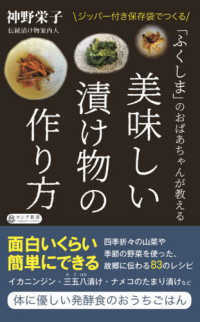Full Description
Since its inception in 2001, the International Criminal Court (ICC) has been met with resistance by various African states and their leaders, who see the court as a new iteration of colonial violence and control. In Affective Justice Kamari Maxine Clarke explores the African Union's pushback against the ICC in order to theorize affect's role in shaping forms of justice in the contemporary period. Drawing on fieldwork in The Hague, the African Union in Addis Ababa, sites of postelection violence in Kenya, and Boko Haram's circuits in Northern Nigeria, Clarke formulates the concept of affective justice-an emotional response to competing interpretations of justice-to trace how affect becomes manifest in judicial practices. By detailing the effects of the ICC's all-African indictments, she outlines how affective responses to these call into question the "objectivity" of the ICC's mission to protect those victimized by violence and prosecute perpetrators of those crimes. In analyzing the effects of such cases, Clarke provides a fuller theorization of how people articulate what justice is and the mechanisms through which they do so.
Contents
Acknowledgments ix
Preface. Assemblages of Interconnection xvii
Introduction. Formation, Dislocations, and Unravelings 1
Part I. Component Parks of the International Criminal Law Assemblage 47
1. Genealogies of Anti-impunity: Encapsulating Victims and Perpetrators 49
2. Founding Moments? Shaping Publics through Sentimental Narratives 91
3. Biomediation and the #BringBackOurGirls Campaign: Making Suffering Visible 116
4. From "Perpetrator" to Hero: Renarrating Culpability through Reattribution 140
Part II. Affects, Emotional Regimes, and the Reattribution of International Law 175
5. Reattribution through the Making of an African Criminal Court 177
6. Reattributing the Irrelevance of the Official Capacity Movement as an Affective Practice 217
Epilogue. Toward an Anthropology of International Justice 257
Notes 267
Bibliography 309
Index 337








